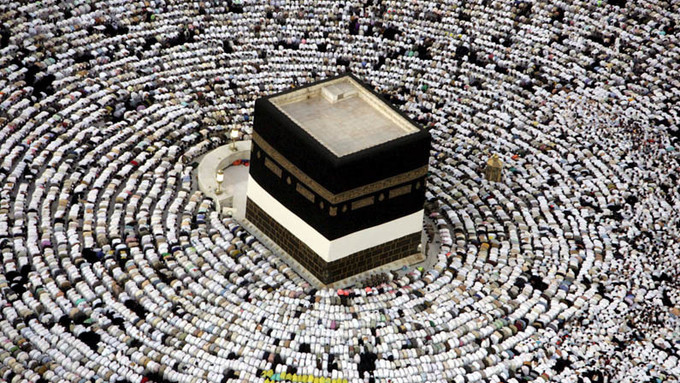The 40 American Hadith: Focus on the Process, Not the Results
The 40 American Hadith
The compilation of hadiths into a small group, 40, has been a tradition for some time in the history of Muslim scholarship. ‘Ulama’ (scholars) have recognized the limits and constraints placed on the average Muslim in their pursuit of requisite and inspirational knowledge of Islam. By compiling a smaller number of Prophetic narrations, often under an overarching theme, it was a way to help make the Deen accessible to Muslims so they might better improve their relationship with Allah. The 40 American Hadith is a gesture in that same direction, a collection of Prophetic wisdom aimed and tailored for a modern American Muslim, to assist him or her in their daily aspirations to walk, live, and breathe, as Believers.
Hadith 2
الثاني: سَدِّدُوا وَقَارِبُوا وَأَبْشِرُوا فَإِنَّهُ لَنْ يُدْخِلَ الْجَنَّةَ أَحَدًا عَمَلُهُ قَالُوا وَلاَ أَنْتَ يَا رَسُولَ اللَّهِ قَالَ وَلاَ أَنَا إِلاَّ أَنْ يَتَغَمَّدَنِيَ اللَّهُ مِنْهُ بِرَحْمَةٍ وَاعْلَمُوا أَنَّ أَحَبَّ الْعَمَلِ إِلَى اللَّهِ أَدْوَمُهُ وَإِنْ قَلَّ
“Musa bin ‘Uqbah (from the Successors of the Companions of the Prophet) ﷺ stated he heard Abu Salmah bin ‘Abd al-Rahman bin ‘Awf narrate a hadith from A'ishah, the wife of the Prophet ﷺ , in which the Prophet stated ﷺ, ‘Be sound and upright in deeds (saddidu/سَدِّدُوا). If you fail to observe this perfectly then try to do the best you can to be on the Straight Path. And be happy with your results for no one will be admitted to Paradise based on his or her deeds alone.’ The Companions of the Prophet said, ‘Allah's Messenger, not even you?! To which he replied, Not even I. Whereas Allah wraps me in His Mercy. Therefore bear this in mind: the deed loved most by Allah is one which is done constantly even though it is small’.”(Sahih Muslim, #2818)
This hadith is in some ways a clarification of the passage in Surah al-Nahl (The Bee) and others like it:
ادْخُلُوا الْجَنَّةَ بِمَا كُنْتُمْ تَعْمَلُونَ
“...Enter Paradise by what you accomplished in deeds.” (Qur’an,16:32)
Here the Prophet ﷺ clarifies what is meant by “what you accomplished in deeds” through emphasizing we should not go to extremes when seeking to do good. In Islam, the end never justifies the means, even if the end is good. Many of the world’s problems (war, economic injustice, environmental destruction, etc.) today can be traced back to the misnomer of the ends justifying the means; this Prophetic narration addresses many challenges facing Muslims today as well.
At the risk of making a cliché, Islam is not a race or a marathon. It’s a way of living prescribed by the Creator, as demonstrated by the Prophet ﷺ. There is an intended balance that ought to be struck between immediate repentance and living to fight another day. What I mean by this is we need not wait to ask Allah for forgiveness (or blessings, etc.). But we should not allow the pursuit of deeds—and their inevitable failures—discourage us from trying again. While there is no guarantee of a tomorrow, we must not fool ourselves into thinking that Allah is only a results-oriented Lord: any means, any methods, even those which breach our contract with Him, are not allowed in order to achieve whatever we may want (anything from Allah’s pleasure to earthly gain). A simple example would be selling alcohol and giving the proceeds to orphans.
Know this, when Allah states:
لَهُ ما فِي السَّماواتِ وَما فِي الأَرضِ ۗ وَإِنَّ اللَّهَ لَهُوَ الغَنِيُّ الحَميدُ
“Whatever is within the heavens and on earth belongs to Him, for Allah is the Self-Sufficient and the Praiseworthy.” (Qur'an, 22:64)
We take from it that the Muslim strives to never lose sight that it is he or she that is in need of the One Who Has No Needs.
Faith & Spirituality Related Articles

5 Practical Steps To Get You Ready for Ramadan
As Ramadan is less than a month away, we might feel we often haven't done enough to prepare for it. Here are 5 things we can do right now during Shaban to make sure that we get the most out of Ramadan. The Prophet (Peace & Blessings upon Him & His Family) supplicated,” O Allah give us the blessings of Shaban and give us the treasure of Ramadan.”

Hajj at Home: Kindling the Spirit of Arafah
Even if we are not on Hajj this year, our situation is no different. We navigate through the complexities of our daily life, immersed in the never-ending responsibilities of work and family, inundated with the intrusions of technology and social media into every minute of our lives, moving from place to place and idea to idea.
